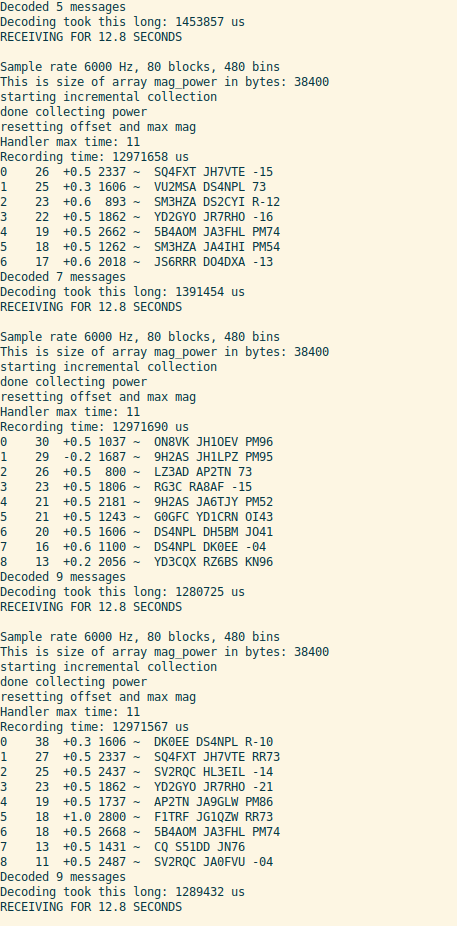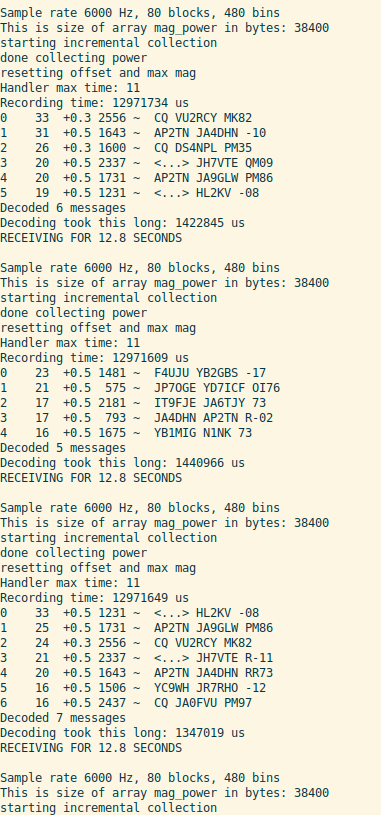Raspberry Pi 'Pico W' FT8 Decoder + Spotter
Solar-powered WiFi-enabled FT8 decoder, and spotter using a Raspberry Pi Pico W board.
Currently, it is able to decode live audio signals that are input into the ADC (GPIO 26), displaying them on the serial port.
This firmware is written for the PDX++ project.
Hardware Requirements
- Raspberry Pi Pico W board
Connections
Si5351 (used for TX):
- SDA to GPIO16
- SCL to GPIO17
ADC on GPIO26.
Build Steps
Follow https://github.com/raspberrypi/pico-sdk#quick-start-your-own-project
mkdir -p ~/repos
cd ~/repos
git clone https://github.com/raspberrypi/pico-sdk.git
export PICO_SDK_PATH=${HOME}/repos/pico-sdk
git clone https://github.com/kholia/SunshineFT8.git
cd SunshineFT8
make -f Makefile.PicoW
make
Done. At the end of this process a run_ft8.uf2 file is generated which can be
uploaded to the Pico W board.
Testing
Live decoding works great with the audio feed coming from a uBITX transceiver.
Pico (in ML76 grid) even decoded a US station - lucky timing!
Misc Notes
Folks have done FT8 decoding on STM32F7, and Teensy 3.6 before.
However, STM32 stuff is unobtanium (and expensive) in year 2022. At almost half the Teensy 3.6's price point, the RPi 2W is a much better platform for decoding FT8 and also happens to be unobtanium!
Besides these points, decoding FT8 in real-time on a 6 USD Pi Pico W (Arm Cortex-M0+ Inside) microcontroller with < 150mA current consumption sounds like fun :-)

